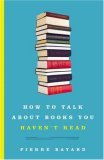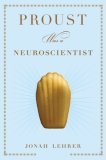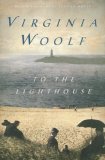Currently reading: ‘Smart World’
November 25, 2007
books on the mind, consciousness, cognitive science…
November 25, 2007
November 23, 2007
My practice is to read nonfiction books straight through, beginning to end – I like to immerse myself in the author’s flow of thought and argument. That is not the method recommended by Paul Edwards (from the University of Michigan School of Information) in the following article:
“How to Read: Strategies for Getting the Most out of Non-Fiction Reading” (links to a 7-page pdf)
He says: “So unless you’re stuck in prison with nothing else to do, NEVER read a non-fiction book from beginning to end.” Though I can’t agree with that, there are some good tips on reading strategies.
Theoretically related is this recent book about reading (or not reading):
How to Talk About Books You Haven’t Read by Pierre Bayard, which has been getting a lot of attention…
 Complete Review has a great page full of links related to this title.
Complete Review has a great page full of links related to this title.
November 22, 2007
 I have two personal “action items” as a result of reading Proust Was a Neuroscientist
I have two personal “action items” as a result of reading Proust Was a Neuroscientist. The first is to read Virginia Woolf for her insights into self and consciousness.
Here is an excerpt from the chapter on Virginia Woolf (p. 182):
But how do we endure? How does the self transcend the separateness of its attentive moments? How does a process become us? For Woolf, the answer was simple: the self is an illusion. This was her final view of the self. Although she began by trying to dismantle the stodgy nineteenth-century notion of consciousness, in which the self was treated like a “piece of furniture,” she ended up realizing that the self actually existed, if only as a slight of mind. Just as a novelist creates a narrative, a person creates a sense of being. The self is simply our work of art, a fiction created by the brain in order to make sense of its own disunity. In a world made of fragments, the self is our sole “theme, recurring, half remembered, half foreseen.” If it didn’t exist, then nothing would exist. We would be a brain full of characters, hopelessly searching for an author.

My second action item – based on the chapter on Stravinsky – is to listen to “difficult” or unfamiliar music. I’m not sure if this applies to other art forms besides music, but I was fascinated by the account of Stravinsky’s ‘Rite of Spring’ as “simulated madness” that the mind later learned to listen to – explained neuroscientifically by the release of dopamine in response to surprising sounds. (“New Sounds” from WNYC is a good source for contemporary new music. For “simulated madness” – maybe watching a David Lynch film like ‘Inland Empire’ provides a similar experience?)
Lehrer writes (p. 142-143): “If the art feels difficult, it is only because our neurons are stretching to understand it. The pain flows from the growth… If not for the difficulty of the avant-garde, we would worship nothing but that which we already know.”
November 21, 2007
iResearch Reporter is a search engine that extracts text to provide a summary of search results – something interesting to play with.
Found via Pandia Search Engine News.
[I’m back from my trip & resuming (relatively) regular posting.]
November 17, 2007
‘In David Chalmers’s slogan, “Experience is information from the inside; physics is information from the outside.”’
quote from “Mind of a Rock” by Jim Holt, New York Times Magazine, Nov 18, 2007, on panpsychism. The article refers to the book Consciousness and Its Place in Nature: Does Physicalism Entail Panpsychism?; another review is linked in this earlier blog post
Powered by ScribeFire.
